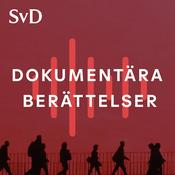The EU AI Act Newsletter

42 avsnitt

The EU AI Act Newsletter #93: Transparency Code of Practice First Draft
2026-1-05 | 8 min.
This first draft of the Code of Practice on transparency of AI-generated content was released aiming to help organisations comply with requirements for marking and labelling such content.. Legislative Process First Code of Practice draft published: The first draft of the Code of Practice on transparency of AI-generated content addresses key considerations for providers and deployers of AI systems within the scope of Article 50(2) and (4) of the AI Act. Developed through collaborative effort involving hundreds of participants from industry, academia, civil society and Member States, the Code emerged from two Working Groups established in November 2025. The drafting process incorporated 187 written submissions from a public consultation, three workshops and a review of expert studies. The Code aims to ensure that AI-generated and manipulated content are marked in machine-readable, detectable and interoperable formats, whilst enabling people to identify deepfakes and AI-generated text published regarding matters of public interest. This foundational draft invites stakeholder feedback by 23 January 2026 to inform the second version, which will facilitate transparency of AI-generated content within the EU. Analyses 2026 to be the year the world comes together for AI safety? A Nature editorial predicts continued progress in artificial intelligence in [...] ---Outline:(00:39) Legislative Process(01:49) Analyses(08:23) Discussion about this post(08:27) Ready for more? --- First published: January 5th, 2026 Source: https://artificialintelligenceact.substack.com/p/the-eu-ai-act-newsletter-93-transparency --- Narrated by TYPE III AUDIO. ---Images from the article:Apple Podcasts and Spotify do not show images in the episode description. Try Pocket Casts, or another podcast app.

The EU AI Act Newsletter #92: AI Sandboxes Consultation Open
2025-12-15 | 8 min.
The European Commission is inviting feedback on draft rules for establishing AI regulatory sandboxes as part of the AI Act.. Legislative Process Consultation on AI regulatory sandboxes: The European Commission is seeking feedback on draft implementing act for establishing AI regulatory sandboxes under the AI Act, with consultation open from 2 December 2025 to 13 January 2026. The Act permits prospective providers to develop, train, validate and test innovative AI systems for limited periods under regulatory supervision within controlled frameworks established by competent authorities, including in real-world conditions where appropriate. These AI regulatory sandboxes aim to support the Act's objectives of fostering AI innovation whilst ensuring compliance with the legislation. The Commission will adopt an implementing act to set out common rules for the establishment and operation of sandboxes as mandated by the AI Act. The draft implementing act is available for public consultation for five weeks, during which stakeholders can submit comments on the proposed framework. Consultation on protocols for reserving rights from text and data mining: The European Commission has launched a stakeholder consultation from 1 December 2025 to 9 January 2026 on protocols for reserving rights from text and data mining under the AI [...] ---Outline:(00:36) Legislative Process(02:52) Analyses(08:04) Discussion about this post(08:08) Ready for more? --- First published: December 15th, 2025 Source: https://artificialintelligenceact.substack.com/p/the-eu-ai-act-newsletter-92-ai-sandboxes --- Narrated by TYPE III AUDIO. ---Images from the article:Apple Podcasts and Spotify do not show images in the episode description. Try Pocket Casts, or another podcast app.

The EU AI Act Newsletter #91: Whistleblower Tool Launch
2025-12-01 | 8 min.
The European Commission has launched a whistleblower tool for reporting suspected breaches of the AI Act directly to the EU AI Office.. Legislative Process Commission launches Digital Omnibus proposal: The European Commission has proposed simplification measures within the Digital Omnibus to ensure effective AI Act implementation whilst supporting innovation. The package addresses artificial intelligence, cybersecurity and data regulations. One of the key provisions links rules for high-risk AI systems to the availability of necessary support tools such as standards, with implementation delayed up to 16 months until the Commission confirms that these resources are ready. This approach aims to provide companies with essential guidance before enforcement begins. Other proposed amendments include extending SME simplifications to small mid-cap companies, potentially saving €225 million annually through reduced technical documentation requirements. The package also broadens regulatory sandbox access for more innovators, establishing an EU-level sandbox by 2028 and expanding real-world testing opportunities, particularly in sectors like automotive. Additionally, the Commission proposes reinforcing the AI Office's powers and centralising oversight of AI systems built on general-purpose models to reduce governance fragmentation. Commission launches whistleblower tool: The European Commission has launched a whistleblower tool for the AI Act, providing a secure and confidential [...] ---Outline:(00:35) Legislative Process(04:07) Analyses(08:41) Discussion about this post --- First published: December 1st, 2025 Source: https://artificialintelligenceact.substack.com/p/the-eu-ai-act-newsletter-91-whistleblower --- Narrated by TYPE III AUDIO. ---Images from the article:Apple Podcasts and Spotify do not show images in the episode description. Try Pocket Casts, or another podcast app.

The EU AI Act Newsletter #90: Digital Simplification Package Imminent
2025-11-17 | 8 min.
The European Commission is expected to propose a year-long delay for key elements of its AI regulation in its forthcoming Digital Omnibus.. Legislative Process Code of practice on AI-generated content launches: The European Commission has initiated work on a code of practice for marking and labelling AI-generated content, launching with a plenary meeting on 5 November 2025. The initiative responds to increasing difficulties in distinguishing between AI-generated and human-created content, aiming to reduce risks of misinformation, fraud, impersonation, and consumer deception. This voluntary code will help providers meet AI Act transparency requirements, which mandate clear marking of deepfakes and certain AI-generated content. The code will support content marking in machine-readable formats to enable detection across various media types including audio, images, video and text. The code will particularly focus on helping deployers disclose AI involvement in public interest matters. Independent experts appointed by the European AI Office will lead a seven-month, stakeholder-driven process, incorporating input from public consultation and selected stakeholders. These requirements will take effect in August 2026, complementing existing regulations for high-risk and general-purpose AI. Meet the chairs of the new code here. Social democrats lay down red lines on revamping EU's digital rulebook: As [...] ---Outline:(00:36) Legislative Process(03:55) Analyses(07:52) Jobs(08:19) Discussion about this post --- First published: November 17th, 2025 Source: https://artificialintelligenceact.substack.com/p/the-eu-ai-act-newsletter-90-digital --- Narrated by TYPE III AUDIO. ---Images from the article:Apple Podcasts and Spotify do not show images in the episode description. Try Pocket Casts, or another podcast app.

The EU AI Act Newsletter #89: AI Standards Acceleration Updates
2025-11-03 | 9 min.
CEN and CENELEC have announced exceptional measures to speed up the development of European standards supporting the AI Act.. Legislative Process German digital ministry asks: According to Luca Bertuzzi from MLex, Germany's digital ministry has proposed significant changes to the AI Act through a draft position paper circulated by the Federal Ministry for Digital Transformation, which requires Social Democratic Party approval to become official stance. The paper advocates for more lenient implementation and reduced requirements. It suggests one-year extensions for high-risk requirements and sectoral obligations deadlines, broader research exemptions encompassing real-world testing, and harmonisation of terminology across EU regulations. The ministry also seeks streamlined documentation requirements, clearer definitions of model providers and provider-user transitions, and a review of high-risk categories, particularly in insurance. Additional recommendations include simplifying technical documentation and AI literacy requirements, removing fundamental rights impact assessments for public bodies, and extending quality management system exemptions to SMEs and start-ups. Dutch authority probe into early violations of the rules for general-purpose AI models: Luca Bertuzzi also reported that OpenAI, xAI and Mistral may face early enforcement actions under the AI Act following a Dutch Data Protection Authority investigation revealing their chatbots provided misleading voting advice ahead [...] ---Outline:(00:35) Legislative Process(03:44) Analyses(08:05) Jobs(08:38) Discussion about this post --- First published: November 3rd, 2025 Source: https://artificialintelligenceact.substack.com/p/the-eu-ai-act-newsletter-89-ai-standards --- Narrated by TYPE III AUDIO. ---Images from the article:Apple Podcasts and Spotify do not show images in the episode description. Try Pocket Casts, or another podcast app.
Fler podcasts i Samhälle och kultur
Trendiga poddar i Samhälle och kultur
Om The EU AI Act Newsletter
Lyssna på The EU AI Act Newsletter, Är det bara vi med Jessica & Sebastian och många andra poddar från världens alla hörn med radio.se-appen

Hämta den kostnadsfria radio.se-appen
- Bokmärk stationer och podcasts
- Strömma via Wi-Fi eller Bluetooth
- Stödjer Carplay & Android Auto
- Många andra appfunktioner
Hämta den kostnadsfria radio.se-appen
- Bokmärk stationer och podcasts
- Strömma via Wi-Fi eller Bluetooth
- Stödjer Carplay & Android Auto
- Många andra appfunktioner


The EU AI Act Newsletter
ladda ner appen,
börja lyssna.
































